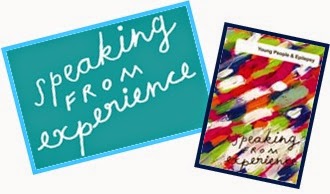Young people and Epilepsy is a DVD produced in partnership with Epilepsy Foundation Victoria which presents an insight into what it is like for seven young people living with epilepsy. Topics covered include:
1. diagnosis
2. symptoms and seizure
3. medication
4. who do you tell 5. challenges
6. getting support
7. looking ahead
8. words of wisdom
The
discussions help create awareness about health information regarding Epilepsy
including the different types of epilepsy. One of the goals of the DVD is to
create community awareness and understanding to reduce the impact on individual
lives.
By listening to the personal accounts
of the young people,
viewers find out what it is like for them. Symptoms, medications and challenges
vary yet these young people all work towards self-control and management of epilepsy in their lives. Some of the
challenges faced surround education particularly regarding absence from school and missed work as well as life at school amongst peers and teachers.
For one young person a challenge was distance travelled and access to
appointments and services as well as the impact of this on his family. Dealing with tiredness, moodiness, as well a
range of side effects from medications affect how the students feel. Social
issues are talked about and gaining support from family, friends, health
professionals, teachers and counsellors is essential.
At a time of
rapid development and change, the young people provided insight into what is of
importance to them and how they live with epilepsy. They
provide positive insights into how they have faced and overcome challenges.
Some of the young people have been living with epilepsy for a number of years
and spoke about how it has changed their lives in many ways and not in others.
Personal characteristics such as self-confidence and self-control have been
developed. For example, several young people talked about getting enough sleep
to meet the challenges of studying in high school. A few spoke of not drinking
alcohol and the importance of looking after their health.
There is a
section at the end for teachers. The benefits of the DVD as a tool for great
learning opportunities in the classroom are highlighted. Ideas about how to use
the DVD are outlined, including as a themed approach, for focus groups, raising
health awareness and as awareness on chronic illness. The personal approach
adds rich material and provides a unique opportunity to view chronic illness in
a positive way.
The DVD can
be used for professional development of various staff members at school and
support information regarding a child at school with a chronic illness.Teachers will benefit from having reliable information at hand, providing
support and follow-up for students as well as looking out for students who may
be vulnerable.
The young
people in this video have bravely talked about Epilepsy. They have told us what
Epilepsy is, how they live with it, the negative impacts of living with
epilepsy on their sense of who they are, as well as how they have overcome
challenges. Community awareness does much to encourage children, young people
and families on their journey with epilepsy.
Need more information?
If you would
like to view more about epilepsy the AWCH library holds another DVD, Epilepsy in childhood which includes personal accounts
from 5 families. Adults and two children talk about their experiences. This DVD
covers the impact of epilepsy on both the child and their family.
A
comprehensive book, Growing up with epilepsy: a practical
guide for parents,
looks at many aspects of epilepsy addressing challenges found at different
stages of a child’s life. Under basic tools, find out about understanding
epilepsy, challenges of living with epilepsy, epilepsy at the “dinner table”
and epilepsy goes to school. Although written in an American context the
author, Lynn Bennett Blackburn, pediatric neuropsychologist at St Louis
Children’s hospital, has much to offer parents at different stages of their
child’s journey.
For more
school, student and teacher savvy information, head to Epilepsy Foundation of
Victoria’s Smart Schools program.
Jillian
Rattray
AWCH librarian
March 2015



